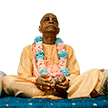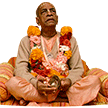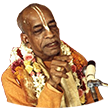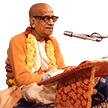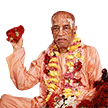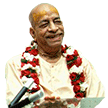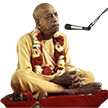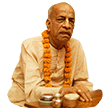Without Hesitation - an essential subject: Difference between revisions
(Created page with "Category:Essential Subjects <!----------------------- edit below this line -----------------------> <!------------------------ begin introduction text below --------------...") |
(Vanibot #0041: Moves Choose Another box to the end) |
||
| Line 2: | Line 2: | ||
<!----------------------- edit below this line -----------------------> | <!----------------------- edit below this line -----------------------> | ||
<!------------------------ begin introduction text below ------------------------> | <!------------------------ begin introduction text below ------------------------> | ||
According to Vedic injunction, one has to take his bath early in the morning even during the month of Māgha (January-February). It is very cold at that time, but in spite of that a man who abides by the religious principles does not hesitate to take his bath. Similarly, a woman does not hesitate to cook in the kitchen in the months of May and June, the hottest part of the summer season. One has to execute his duty in spite of climatic inconveniences. | |||
Srila Prabhupada's books, lectures, conversations and letters offer a comprehensive presentation of this essential subject as seen in the Vaniquotes '''[[Vaniquotes:Category: | Srila Prabhupada's books, lectures, conversations and letters offer a comprehensive presentation of this essential subject as seen in the Vaniquotes '''[[Vaniquotes:Category:Without Hesitation|Without Hesitation]]''' category. An introduction from his books is given below in the following 8 quotes. | ||
<!-------- end introduction text and don't touch next three lines ---------> | <!-------- end introduction text and don't touch next three lines ---------> | ||
---- | ---- | ||
== Quotes from Srila Prabhupada's books == | == Quotes from Srila Prabhupada's books == | ||
<!----------------- edit quote boxes below this line -----------------> | <!----------------- edit quote boxes below this line -----------------> | ||
{{VaniQuotebox| | {{VaniQuotebox|A dog can mate with a bitch before the public eyes without hesitation, but if a human being does so the act will be considered a public nuisance, and the person will be criminally prosecuted|A dog can mate with a bitch before the public eyes without hesitation, but if a human being does so the act will be considered a public nuisance, and the person will be criminally prosecuted. Therefore for the human being there are some rules and regulations, even for fulfilling common demands. The human society avoids such rules and regulations when it is bewildered by the influence of the age of Kali. '''(Śrīmad-Bhāgavatam 1.16.22)'''}} | ||
{{VaniQuotebox| | {{VaniQuotebox|Although the earth assumed the shape of a cow by her mystic powers in order to be saved from being killed by the King, the King was aware of this fact and would not hesitate to cut her to pieces, just like small bits of grain|The earth informed King Pṛthu that if he destroyed her, he and his subjects would all fall down into the waters of the garbha ocean. King Pṛthu now replies to that point. Although the earth assumed the shape of a cow by her mystic powers in order to be saved from being killed by the King, the King was aware of this fact and would not hesitate to cut her to pieces, just like small bits of grain. As far as the destruction of the citizens is concerned, Mahārāja Pṛthu maintained that he could uphold everyone by his own mystic powers. '''(Śrīmad-Bhāgavatam 4.17.27)'''}} | ||
{{VaniQuotebox| | {{VaniQuotebox|Before Maharaja Pariksit, Sukadeva Gosvami recited Srimad-Bhagavatam and answered the questions of Maharaja Pariksit unhesitatingly, and thus both the master and the disciple got salvation|Both the spiritual master and the disciple, namely Śrī Śukadeva Gosvāmī and Mahārāja Parīkṣit, attained perfection through the medium of Śrīmad-Bhāgavatam. Śukadeva Gosvāmī learned Śrīmad-Bhāgavatam from his father, Vyāsadeva, but he had no chance to recite it. Before Mahārāja Parīkṣit he recited Śrīmad-Bhāgavatam and answered the questions of Mahārāja Parīkṣit unhesitatingly, and thus both the master and the disciple got salvation. '''(Śrīmad-Bhāgavatam 1.19.31)'''}} | ||
{{VaniQuotebox| | {{VaniQuotebox|Dear Syamasundara, they (the gopis) said, we are all Your eternal servitors. Whatever You order us to do, we are obliged to perform without hesitation because we consider it our religious duty|Kindly deliver our garments immediately; otherwise we shall suffer." They then began to appeal to Kṛṣṇa with great submission. "Dear Śyāmasundara," they said, "we are all Your eternal servitors. Whatever You order us to do, we are obliged to perform without hesitation because we consider it our religious duty. But if You insist on putting this proposal to us, which is impossible to perform, then certainly we will have to go to Nanda Mahārāja and lodge a complaint against You. '''(Kṛṣṇa Book, Chapter 22)'''}} | ||
{{VaniQuotebox| | {{VaniQuotebox|Lord Caitanya was born in a high brahmana family and was situated in the highest perfectional stage of sannyasa, He nonetheless showed by His behavior that even an elevated person would not hesitate to take lessons from Ramananda Raya|A challenging, puffed-up person cannot gain anything from a Kṛṣṇa conscious man; he simply remains in material consciousness. Although Lord Caitanya was born in a high brāhmaṇa family and was situated in the highest perfectional stage of sannyāsa, He nonetheless showed by His behavior that even an elevated person would not hesitate to take lessons from Rāmānanda Rāya, although Rāmānanda appeared as a householder situated in a social status beneath that of a brāhmaṇa. '''(Teachings of Lord Caitanya, Chapter 30)'''}} | ||
{{VaniQuotebox| | {{VaniQuotebox|Nunam pramattah kurute vikarma: a human being who is mad after sense gratification does not hesitate to act sinfully|A man engages in sinful activities because he does not know what he did in his past life to get his present materially conditioned body, which is subjected to the threefold miseries. As stated by Ṛṣabhadeva in Śrīmad-Bhāgavatam (5.5.4), nūnaṁ pramattaḥ kurute vikarma: a human being who is mad after sense gratification does not hesitate to act sinfully. Yad indriya-prītaya āpṛṇoti: he performs sinful actions simply for sense gratification. '''(Śrīmad-Bhāgavatam 6.1.49)'''}} | ||
{{VaniQuotebox| | {{VaniQuotebox|One has to receive the transcendental sound from the right source, accept it as a reality and prosecute the direction without hesitation|One has to receive the transcendental sound from the right source, accept it as a reality and prosecute the direction without hesitation. The secret of success is to receive the sound from the right source of a bona fide spiritual master. Mundane manufactured sound has no potency, and as such, seemingly transcendental sound received from an unauthorized person also has no potency. '''(Śrīmad-Bhāgavatam 2.9.8)'''}} | ||
{{VaniQuotebox| | {{VaniQuotebox|Renunciation was exhibited by Lord Caitanya Mahaprabhu when He stayed with Advaita Prabhu after taking sannyasa. All the devotees there wanted Him to stay a few days longer, but Lord Caitanya left without hesitation|Renunciation was also exhibited by Lord Caitanya Mahāprabhu when He stayed with Advaita Prabhu after taking sannyāsa. All the devotees there wanted Him to stay a few days longer, but Lord Caitanya left without hesitation. The conclusion is that although the Supreme Lord has unlimited kindness for His devotees, He is not attached to anyone. He is equally kind to His innumerable devotees all over the creation. '''(Śrīmad-Bhāgavatam 4.30.43)'''}} | ||
<!----------------- edit quote boxes above this line -----------------> | <!----------------- edit quote boxes above this line -----------------> | ||
''' | '''Without Hesitation - [[Vaniquotes:Category:Without Hesitation|explore more within this category]]'''. | ||
{{EsentialSubjectTotal}} | {{EsentialSubjectTotal}} | ||
<div style="float:left;"> | |||
{{EssentialSubjectnav}} | |||
</div> | |||
__NOTOC__ | __NOTOC__ | ||
__NOEDITSECTION__ | __NOEDITSECTION__ | ||
Latest revision as of 18:13, 22 November 2020
According to Vedic injunction, one has to take his bath early in the morning even during the month of Māgha (January-February). It is very cold at that time, but in spite of that a man who abides by the religious principles does not hesitate to take his bath. Similarly, a woman does not hesitate to cook in the kitchen in the months of May and June, the hottest part of the summer season. One has to execute his duty in spite of climatic inconveniences.
Srila Prabhupada's books, lectures, conversations and letters offer a comprehensive presentation of this essential subject as seen in the Vaniquotes Without Hesitation category. An introduction from his books is given below in the following 8 quotes.
Quotes from Srila Prabhupada's books
Without Hesitation - explore more within this category.
Vanipedia has now over 903 introductory articles compiled from Srila Prabhupada's books under the series titled Essential Subjects. All these articles can be seen in the Table of Content on the right side of this article and also here in this Umbrella Category. Browse through them to relish the breadth and depth of Srila Prabhupada's teachings - There is a subject for everyone.
